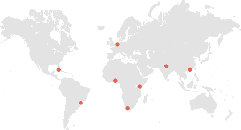January 14 - 16, 2013
The first 3-day design workshop for the development of Guangming New Town in Shenzhen took place between January 14 - January 16, 2013 in collaboration with the Shenzhen Center for Design. The workshop brought together eight Dutch and nine Chinese designers and academic scholars who are specialized in strategic planning, ecology, green architecture, economics, sociology, and landscape development.
Other participants included representatives from the Guangming Urban Planning Bureau and domestic well-known enterprises such as Zhaoshang, Huaqiang and Xunteng.
Guangming New Town is positioned to become a showcase low-carbon city in Shenzhen. The design workshop was focused on the Gateway Area of the New Town, where the station for the Guangzhou-Shenzhen-Hong Kong express train is located. The design workshop concentrated on analyzing the potential of existing conditions of the area, identifying the unique selling point for future development and defining the implementation strategies for the urban planning. The workshop produced a series of strategy suggestions and design proposals. The results have been synthesized into “seven points of agreement”. Each point includes a critical review of the current urban plan and future recommendations for connecting local qualities with global opportunities, economic development potentials, landscape development models, new modes of transportation and implementation tools.
The experts emphasized that Guangming New Town should position itself more ambitiously in the global viewpoint by further exploring its local qualities and potentials through experimentation. Research and design proposals were done on intensifying knowledge-intensive economic sectors and industrial activities in ICT, medical science, business services and transportation services. Furthermore, recommendations were made about how to integrate the industry and further develop the HUB area in regard to infrastructure, mixed-use program, public space and green development. Finally, it was suggested that the development of the Gateway Area needs a shared ambition by public and private stakeholders and a strategic plan with urban development guidelines to phase, monitor and evaluate the quality of the development of this area on a high level.
The workshop was moderated by Linda Vlassenrood (INTI) and Huang Weiwen (director Shenzhen Center for Design). Students from the Shenzhen University and Delft University of Technology supported the experts.
DUTCH PARTICIPANTS:
1. Ronald Wall (Economic Geographer – Institute for Housing and Urban Development Studies)
2. Gaston Remmers (Chair Eco-effective Entrepreneurship in Urban Environments – CAH, Almere University of Applied Sciences)
3. Ivonne de Nood (Landscape Architect - City of Almere)
4. Harry Zondag (Strategic Advisor Spatial Planning - City of Almere)
5. Wiebe Oosterhof (Advisor Strategic Urban Planning - City of Almere)
6. Arnold Reijndorp (Professor of Social-economic and Spatial Development of New Urban Areas, Centre for Urban Studies – University of Amsterdam)
7. Leo Versteijlen (Director, co-owner and co-founder of SITE urban development)
8. Michelle Provoost (Director of International New Town Institute, co-founder of Crimson Architectural Historians)
CHINESE PARTICIPANTS:
1. Huang Weiwen (Director Shenzhen Center for Design)
2. Tat Lam (Chinese University of Hong Kong – Director Urbanus Research Bureau)
3. Su Yunsheng (Professor, Shanghai Tongji University Urban Planning & Design Institute)
4. Yang Xiaochun (Associate Professor, School of Architecture and Urban Planning, Shenzhen University)
5. Yang Hui (Head of Guangming Bureau of Transportation, Traffic Management Division)
6. Huang Gu (Director - Northwest Municipal Engineering Design Institute Co., Ltd, China)
7. Lin Wusheng (Senior engineer - China Merchants Property Development Planning Design Center)
8. Liu Sheng (Doreen) (Founder of NODE architectural office)
9. Peng Shuiqing (Director of Urban Planning Bureau – Guangming New Town)
10. James Hong (Associate Professor, School of Architecture and Urban Planning, Shenzhen University)
This event was made possible through contributions from The City of Almere and Guangming New Town.

Current conditions (topography, water system and landscape) have suffered heavily from the preparation and construction of new infrastructure

Group sessions on the second day of the design workshop

Group photo after the final presentation to the local government of Guangming New Town on the third day of the design workshop


